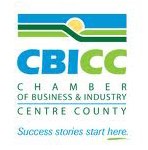Many of us think that we are good stewards of our money. We often think that each purchase is something we need, when in reality it is only something we want. When I was younger I thought I was a great steward of my money. At that time I was living hand to mouth, as most young people do when they are just getting started. It seemed I didn’t have enough money at the end of the month to save. Then I met a very successful gentleman who made a huge difference on my life. He suggested I do the following:
















 Clarity Coaching Tips
Clarity Coaching Tips Common Sense Videos
Common Sense Videos It’s Your Money
It’s Your Money
